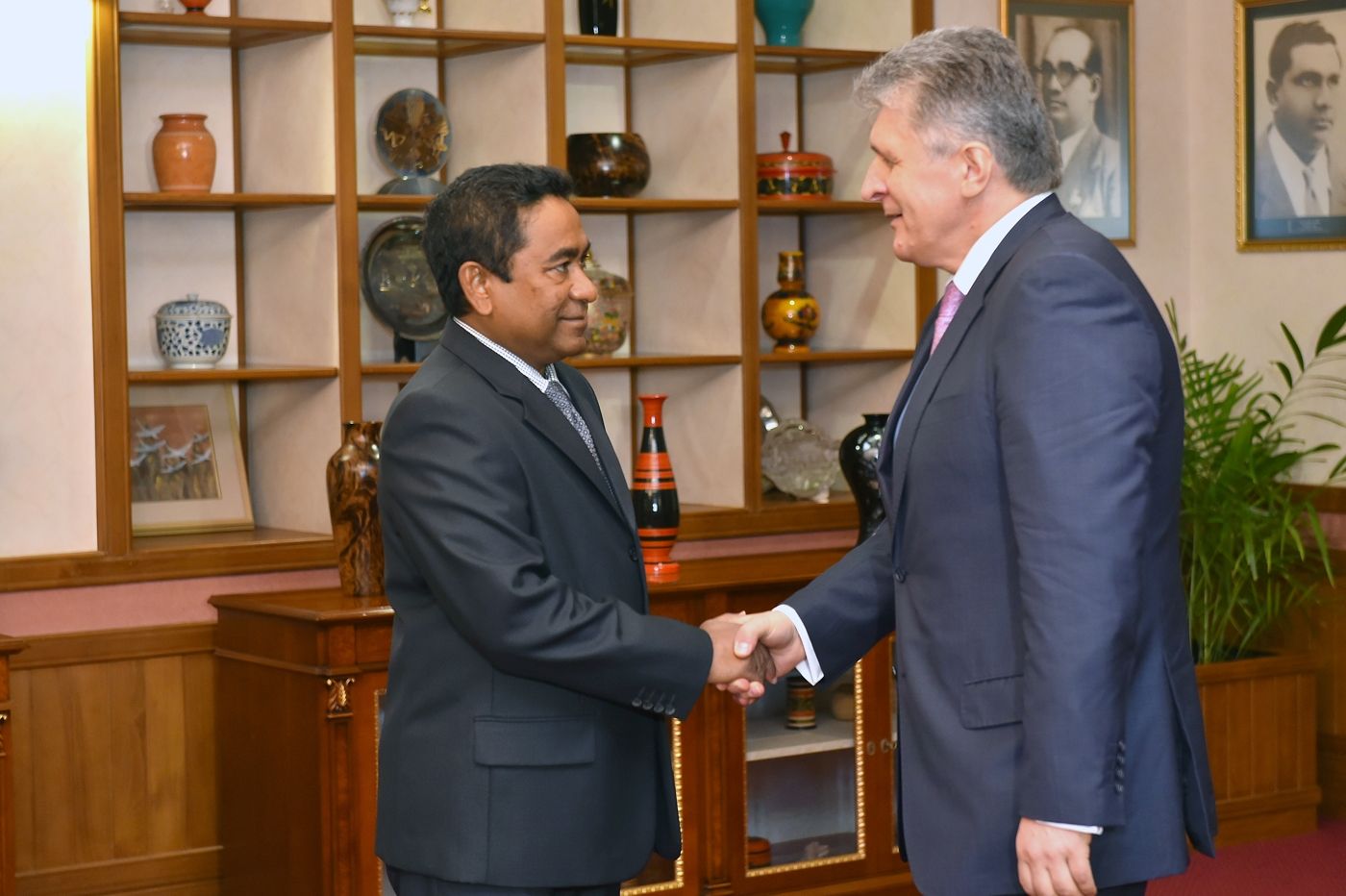UN political chief assures support for ‘dead on arrival’ talks
Senior UN political official Miroslav Jenča has assured President Abdulla Yameen of UN assistance for all-party talks announced amidst continuing international concern over human rights in the Maldives. The talks however appear dead on arrival with the government and the opposition at loggerheads over the release of opposition politicians.

21 Feb 2016, 09:00
Senior UN political official Miroslav Jenča has assured President Abdulla Yameen of UN assistance for all-party talks announced amidst continuing international concern over human rights in the Maldives.
The talks however appear dead on arrival with the government and the opposition at loggerheads over the release of opposition politicians sentenced to lengthy jail terms in trials widely criticised for due process violations.
The president had first invited UN officials to the Maldives during a call with the UN Secretary General Ban Ki Moon in June last year, shortly after announcing that he would begin talks with opposition parties separately.
The talks failed when former President Mohamed Nasheed, who had been sentenced to 13 years in jail on a terrorism charge, was returned to jail after a brief reprieve in house-imprisonment.
Become a member
Get full access to our archive and personalise your experience.
Already a member?
Discussion
No comments yet. Be the first to share your thoughts!
No comments yet. Be the first to join the conversation!
Join the Conversation
Sign in to share your thoughts under an alias and take part in the discussion. Independent journalism thrives on open, respectful debate — your voice matters.




